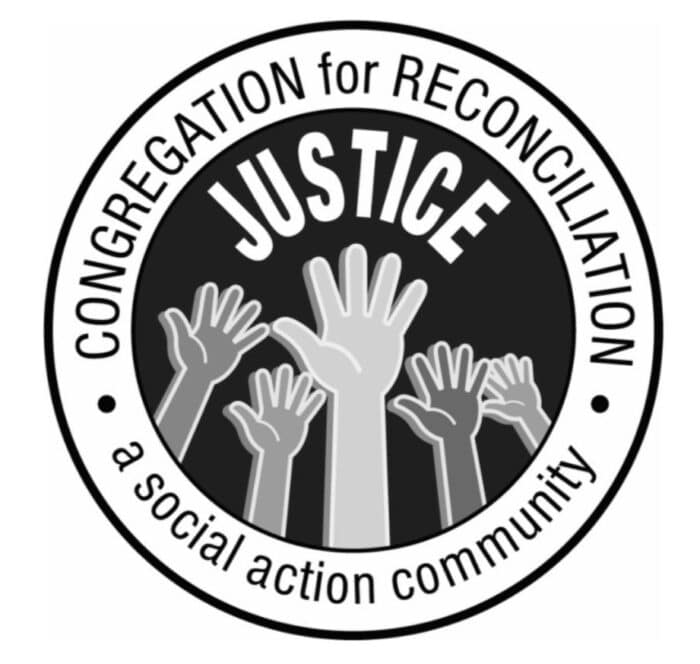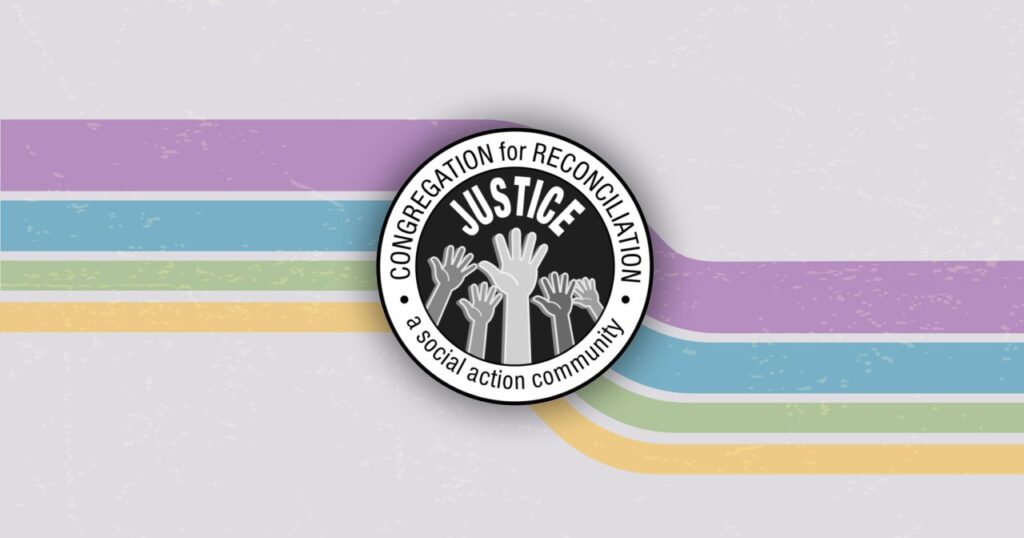Small Ohio church lives on through legacy gift to Join The Movement
A small Ohio congregation gave a very generous gift to the Join The Movement Toward Racial Justice campaign to “fund the next generation of activists.”

The Congregation for Reconciliation of Dayton, Ohio, closed in 2015. But its legacy will live on, in expanding the practice of antiracism in the church and in the world.
“The amount of the gift is not public because the congregation has a long-held value that no one should have greater influence within the church because of wealth or amount of contribution,” said Karen Righter Geiger, the church’s statutory agent. She said the church also sent legacy gifts to Black Lives Matter and a local grocery cooperative in a Dayton food desert.
Geiger was 4 when her father, the Rev. Richard L. Righter, founded the Congregation for Reconciliation. Here, in her words, are the reasons she’s sent the majority of the church’s remaining assets to the Join The Movement campaign:
I grew up in a really special church – where church was synonymous with justice and love. This gift from the Congregation for Reconciliation, UCC, is to the next generation of activists and the hope that they build.
The Congregation for Reconciliation (CfR) of Dayton, Ohio, has, at its roots, racial justice. It was founded in 1968 by the Presbyterian Church (U.S.A.) as one of three experimental congregations in Ohio. The experiment was in response to the Civil Rights struggle and the assassinations of Martin Luther King Jr. and Robert F. Kennedy. As a church without a building, CfR went on to have a 50-year history of social action.
The United Church of Christ was present for this small congregation at critical moments. It provided support in 1970 when CfR became a union (dually affiliated) church with the UCC. In 1972, a national UCC General Synod resolution prompted the congregation to headquarter an international boycott of Gulf Oil that assisted the eventual independence of Angola from colonial Portugal. The boycott defined a clear analysis of racism as a social evil and opposition to economic inequity for the future direction of members and participants. In the 1990s, CfR found its denominational home with the United Church of Christ that had room for the church’s nontraditional structure allowing action committees to have necessary freedom and life together marked by study, celebration and worship.
The social action of the congregation addressed a breadth of local and international issues. CfR was a Just Peace and Open and Affirming Church. Members of faith and conscience sought to work for social, economic, political and environmental justice and to identify and counter systemic injustice through research, study, direct action and reflection. Some actions:
- Fair housing
- Opposition to a beltway that would drain investment from the urban center
- Food sustainability and a ‘Buy Local’ campaign
- Adopting the national ‘Pledge of Resistance’ as a mission and engaging in non-violence training and civil disobedience to stop the Contra War
- Founding member of Dayton’s faith-based community organization of 15 racially diverse congregations, Leaders for Equality and Action in Dayton. LEAD won a landmark ruling in 2013 that extended regional bus routes, with predominantly African American riders, to gain access to jobs and commerce into a white, wealthy suburb that had blocked the buses for two years.
In the 1990s, CfR’s pastor, the Rev. Richard L. Righter, who had been a tentmaker, or part-time pastor, became pastor emeritus. At that time CfR began to save funds in earnest for a next-generation ministry to pass on the unique opportunity for social action in community that members had experienced together. In 2015, after a final attempt to launch the ministry and grow membership, the congregation went through the process of closing. It is this seed money that CfR leaves in the inspiring hands of the Justice and Witness Ministries of the United Church of Christ – for Join the Movement and a next generation of social activists.”
The congregation’s legacy gift will be used as seed money for what will be a larger fundraising campaign for Join The Movement later this year.
“Karen is a delightful woman acting on behalf of the decision of a closing church that was deeply rooted in justice,” said the Rev. Traci Blackmon, associate general minister, Justice and Local Church Ministries. “She wants the amount of the gift to be anonymous because that is a part of the church’s theology of giving.”
“I have had several conversations with Karen about the congregation’s commitment to justice work and antiracism ministries,” said the Rev. Kent Siladi, director of philanthropy. “Karen definitely carries the story of the congregation in her heart.”
Content on ucc.org is copyrighted by the National Setting of the United Church of Christ and may be only shared according to the guidelines outlined here.
Related News
A Prophetic Call for Justice and Peace in Palestine
The executive leaders of the United Church of Christ have issued the following statement...
Read More‘Love is Greater Than Fear’: Regional Youth Events get to the heart of gospel message
United Church of Christ teens attending this summer’s Regional Youth Events (RYE) are...
Read MoreUCC desk calendars available to order now
Prepare for your day, month and year with the United Church of Christ desk calendar —...
Read More


